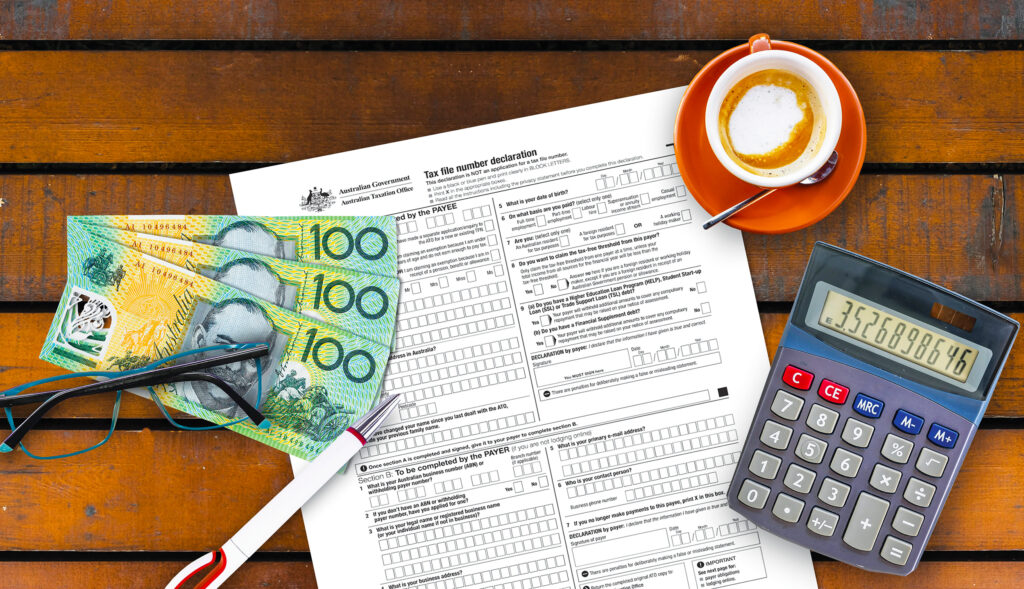Do expats pay taxes?-that will be the topic of today’s article.
Before introducing this article, if you are interested in our core services which are expat financial, insurance and mortgages, you can contact me here.
The best time to consider your financial situation is when you are moving to a new country.

Introduction
An expatriate, or expatriate, is an individual who lives and/or works in a country other than his or her country of citizenship, often temporarily or for business reasons. An expatriate can also be an individual who has renounced the citizenship of his country in order to become a citizen of another country.
So an expatriate is a migrant worker who is a professional or skilled worker in his profession. An employee holds a position outside their home country, either independently or as a work assignment planned by an employer, which could be a company, university, government, or non-governmental organization.
Expats usually earn more than at home and more than local employees. In addition to wages, businesses sometimes provide their expatriate employees with benefits such as relocation assistance and housing allowance.
Life as an expatriate can be exciting and a great opportunity for career advancement and international expansion, but it can also be an emotionally challenging transition that involves separation from friends and family while adapting to unfamiliar culture and work environments. Hence the reason for the higher compensation offered to these labor migrants.
In this article, we will mainly talk about the taxes an expat should pay, what is a territorial tax and a residence-based tax, and in which countries expats do not pay taxes at all, and in which countries the taxes are the highest and lowest.
Do expats pay taxes? In many countries expats have to pay taxes, in addition to American citizens, who are required to file and pay US taxes on their global income, regardless of where they live or work. This means that expats often have to file and pay taxes both in the United States and in their country of residence.
Usually, expats pay only income taxes, as they arrived in the country for a job purpose, that is why below we will review top countries with no income taxes and top countries with the highest and lowest income taxes.
Countries with no income taxes
For those accustomed to high taxes, it may seem like a distant reality to imagine countries in which one can live without taxes.
You may be wondering how these countries generate enough income to survive without collecting taxes from their citizens?
Many low or zero-tax countries receive government revenues from other sources. This may differ depending on the country. For example, many Gulf countries do not levy income taxes because they receive huge revenues from their state-owned oil industry. In addition, there are beautiful island states such as the Bahamas and Belize, where tourism and offshore financial services make up the majority of their tax revenues and GDP.
Most of the revenue that comes from tax-free and low-tax countries comes from offshore financial sectors. This means that they offer attractive tax breaks for businesses and individuals if they register and start their own business.
Places such as Saint Kitts and Nevis, as well as Vanuatu and the Cayman Islands, are just a few of these places. These countries can attract huge amounts of foreign employers or investment thanks to tax-friendly legislation without imposing direct income taxes.
So, it is clear that there are indeed countries that do not have taxes, but the next question is whether it is really possible to become a resident of these countries in order to get rid of the need to pay taxes. The short answer is yes!
This is definitely possible. However, this is not necessarily easy and can take a significant amount of time, determination, and, in many cases, significant wealth.
United Arab Emirates

The UAE is one of the few Gulf States that has no income tax (others include Kuwait, Oman and Qatar), largely due to the revenue generated from their oil exports. In addition, the UAE does not levy withholding taxes or corporate income tax (for most types of business), and there is no foreign exchange control.
What really makes the UAE different from its neighboring countries is that it is one of the easiest Gulf countries, that allows its expats to live and work. Known for its freest economy in the world, the UAE welcomes foreign investment and expats who want to relocate and take advantage of the many high-paying job opportunities.
The UAE has recently started issuing 10-year residency visas to foreigners, which are fairly easy to obtain. It is a very comfortable and functional place to live, which is why it is one of the best tax-free countries to pay your attention to.
Saint Kitts and Nevis

Unsurprisingly, Caribbean tax havens dominate the full list of countries without an income tax. It seems that the number one decision that will make it easier for you to obtain residency or either citizenship is the island nation of Saint Kitts and Nevis.
Saint Kitts and Nevis has totally no income tax, nor any other taxes, which gives a unique opportunity to the expats to work and earn much. They derive most of their income from tourism and, you guessed it, their offshore financial industry.
Saint Kitts and Nevis is easy to get permanent residency and also offers the oldest and best-known citizenship by investment program. After the devastating damage caused by the hurricane in 2017, they are now offering citizenship at a $ 150,000 discount to their hurricane relief fund. The entire process of obtaining citizenship can take less than a year.
This can be a relatively small price to pay for wealthy people looking for a second citizenship somewhere that will provide significant tax breaks, a reliable second passport, not to mention a new home in one of the most beautiful and charming Caribbean islands.
Bahamas

The Bahamas is one of the most popular tourist destinations in the world, so as you can imagine, it is also a great place to live!
It is extremely easy to obtain an annually renewable temporary residence permit in the Bahamas for $ 1000. However, you will need to invest at least $ 250,000 in real estate in order to obtain permanent residency, which allows you to become a tax resident and therefore completely gets rid of income tax in the long run.
There is no citizenship by investment program in the Bahamas yet. The significant amount of money you’ll need to maintain a permanent residency may pay off for those looking to escape to one of the most popular beach paradises and tax havens.
Monaco

This is the one and only European country that has internationally become one of the best tax-free countries for the mega-rich people to relocate to.
Monaco is a very beautiful country, a wealthy city-state, which is located on the Mediterranean coast. It is also one of the few countries that levy zero tax on its residents and citizens.
Obtaining a residence permit and/or citizenship in Monaco is relatively easy, but extremely expensive. You will need at least a few million dollars to prove you are wealthy enough to obtain permanent residency.
If Monaco sounds like the perfect destination for you, you will join an elite group of wealthy expats leading a tax-free luxury life.
What is the difference between low tax countries and no tax countries?
The difference between tax-free countries and low-tax countries is that tax-free countries have no income tax at all, which often does not include taxation of other forms such as capital gains, income tax, corporate tax. At the moment there are more than 20 countries in the world that have no taxes.
Whereas countries with low taxes have a marginal tax rates that as a rule does not exceed 10%. Low-tax countries can be a good alternative as they often have a better track record in banking and incorporation.
Low tax countries
There are some countries with surprisingly low-income tax rates. This includes places such as:
- Malaysia
- Singapore
- Czech Republic
- Mexico
- Vietnam
- Belize
Countries with a territorial tax system tax income earned only domestically, while income earned abroad is not taxed.
For instance, if you run an online business, becoming a resident of a country which have a territorial tax system, will accordingly lead to the same thing as living in a tax-free country.
In many cases, it is easier for foreigners to obtain a residence permit in countries with low taxes and/or territorial tax systems than in tax-free countries. This is largely due to the nature of the tax-free countries’ economies, which have specific financial rules that favor certain industries.
Countries with the highest income taxes

Let’s have a look at some of the countries (mostly European) that have the highest average personal income tax rates.
Germany
Germany has a progressive tax, which means that people with higher incomes pay more taxes than people with lower incomes. The country levies a progressive tax on profits and capital that does not exceed 45%.
Sources of taxable income include agriculture, forestry, business ownership, self-employment, employment, savings and investment, rental property, and capital gains, and other income. The first € 801 in savings and investment income is tax-deductible due to the deposit surcharge. There is a 25% withholding tax on interest and dividends and a 15% tax on royalties.
Denmark
Progressive income tax in Denmark is 55.9%. Danes pay 8% tax on the Danish labor market, 8% health tax, 22.8% to 27.8% municipal taxes, social security tax of 1,135.8 CZK. ($ 167.06) per year and capital gains tax is 27% or 42%. There is a 27% withholding tax on dividends and 22% on royalties.
Job income, bonuses, fringe benefits, business income, fees, pensions, annuities, social security benefits, dividends, interest, capital gains, and rental income from real estate are taxable.
Tax deductions are available for limited contributions to approved Danish pensions, unemployment insurance, interest on debt, charitable contributions, non-refundable work travel, and double households.
Slovenia
Slovenia levies an individual income tax of 16% to 50%. Residents are taxed on their global income, while non-residents will only tax income derived from Slovenia. Six types of income are subject to taxation: employment; business; agriculture and forestry; rent and fees; dividends, interest, and capital gains; and others. Several types of businesses can be taxed at the rate of 20%. Income tax of 27.5% is levied on dividends, interest, and rental income.
Capital gains are initially taxed at a rate of 27.5%, which will be reduced to 20% if the asset is held for at least five years. This rate is reduced by another 5% every five years until the asset is held for 20 years, after which it is exempt from tax. However, capital gains acquired through derivatives are subject to a 40% rate if realized within the first year, although this rate will also decline over time.
Both royalties and technical service fees are taxed at a rate of 25%. It will be replaced by a progressive individual tax rate if they are taxed as part of an individual’s earned income.
Territorial taxes vs. Residence-based taxes
Under the territorial tax system, multinational companies mainly pay taxes to the countries in which they are physically located and receive their income. This means that territorial tax regimes generally do not tax the income that companies receive in foreign countries. On the other hand, a worldwide tax system – such as the one previously used in the United States – requires companies to pay taxes on global income, no matter where it was received.
Countries introduce territorial tax systems through so-called “participation exemptions,” which may include full or partial exemptions from foreign dividends, capital gains, or both. In this context, dividends can be used to repatriate profits earned from a foreign subsidiary back to the parent company, and capital gains arise, for example, when foreign subsidiaries are sold at a profit. The participation exemption excludes domestic tax on such foreign income, allowing companies to ignore some or all of it when calculating taxable income.
Three cases can be distinguished:
- A fully territorial tax system excludes all dividends from foreign sources and capital gains.
- Partially territorial tax system exempts only a certain share of dividends from foreign sources and capital gains income, or exempts from dividends from foreign sources, but includes capital gains income from foreign sources (or vice versa)
- The global tax system does not exempt from dividends and capital gains from foreign sources.
To understand what is a residence-based tax, let’s review an example on the US. In the US taxes are based on citizenship. This means that it taxes American citizens on their global income no matter where they live. A US citizen residing in London, Toronto, Tokyo, or Johannesburg generally has to file US tax returns and pay US taxes, even if he or she does not live in the US or travel to the US. Taxation is not based on any physical presence checks.
The source of income is also irrelevant: income earned exclusively abroad and additionally taxed abroad is also subject to reporting in the United States. Moreover, Americans overseas are usually double taxed, for example, on certain types of investment income and certain retirement savings mechanisms. In some cases, where a person who was born in the US to foreign parents on a student or temporary work visa who then returned to their home country is also subject to US taxation on their overseas income.
The world norm is to tax citizens depending on their place of residence and income. This is the concept of Residential Taxation (RBT). The ACA’s approach to RBT is to separate foreign income from U.S. income and to exempt from U.S. tax that foreign source income earned when the U.S. citizen is a qualified overseas resident.
Under the RBT, an individual is taxed only on income from US sources and not on income from foreign sources, as the US citizen is legally domiciled outside the United States. The ACA has developed a roadmap for how Congress can look at the development of RBT, but the legislation should form tax filing committees.
For completing this, tax filing committees must hold hearings and review and analyze data and research from ACA and other organizations. Constantly updating the data and making research is super important, building on ACA’s existing work with the District Economics Group (DEG).
At the moment, the US tax policy is not compatible with this century’s global economy, where the tax policy of several countries is based on more residency status rather citizenship. CBT works against the economic interests of the United States in terms of creating jobs and increasing exports, is costly and counterproductive compared to the interests of US citizens who live and work overseas, and this is simply not fair.
Which country to choose for moving?

In case the no-taxes countries are not the best match for you and your future, moving to a country with a low tax is a good alternative. The idea of moving to a country without income tax is naturally attractive.
However, for many, it may be nearly impossible to move to one of the countries where there is no income tax. In most of these countries, it is difficult to establish permanent tax residency, and becoming a full citizen is even more difficult. Several countries that have territorial taxation make it easier for expats to get a residence.
Some of the top choices in this category include Hong Kong, Singapore, Malaysia, and Panama. Accommodation requirements are particularly simple in Malaysia and Panama. Panama has the added benefit of minimum physical presence requirements, meaning you don’t need to reside in Panama for more than half a year to maintain your residency (as in most other countries).
If you are a digital nomad or international entrepreneur, then becoming a tax resident of a country with a territorial tax system can actually offer the same benefits as a country without any income taxes.
What income from work is taxed?
The following list includes some of the main types of employment income that are commonly taxed:
- Salary, including vacation pay and vacation pay. It doesn’t matter how your employer pays you, as long as they use Pay As You Earn (PAYE) correctly – check, cash or bank transfer possible. It doesn’t matter how often you get paid – it can be monthly, weekly, daily, or irregular. It doesn’t matter if you get the same amount every payday or a variable amount depending on the number of hours you work.
- Delayed salary payments – although the rules can be complex.
- Costs that are not entirely, exclusively and not necessarily related to the performance of the work are paid or reimbursed by the applicant’s employer, including:
- Travel expenses between the applicant’s home and permanent place of work
- Costs of caring for a family member of the applicant, such as childcare costs.
- Other “private” expenses of the applicant
- Vouchers that can be redeemed for cash, goods, or services, such as gift certificates.
- Income from a second or third job.
- Payment instead of remuneration, such as payment by the liquidator when the company is liquidated and employees are owed earnings.
- Protective awards that can be awarded by the Industrial Court if the employer has not sent the union a formal layoff notice.
- Retainers are payments made for periods when there is no actual work being done, such as payments to school feeding staff during school holidays.
- Most benefits are lumpy, meaning an allowance that is paid to you regardless of whether you spend it in a certain way or not. However, an employee may be granted tax credits if any of the rounded amounts are spent on qualifying expenses.
- Mandatory payments such as statutory sickness benefit, statutory maternity benefit, and statutory paternity benefit.


